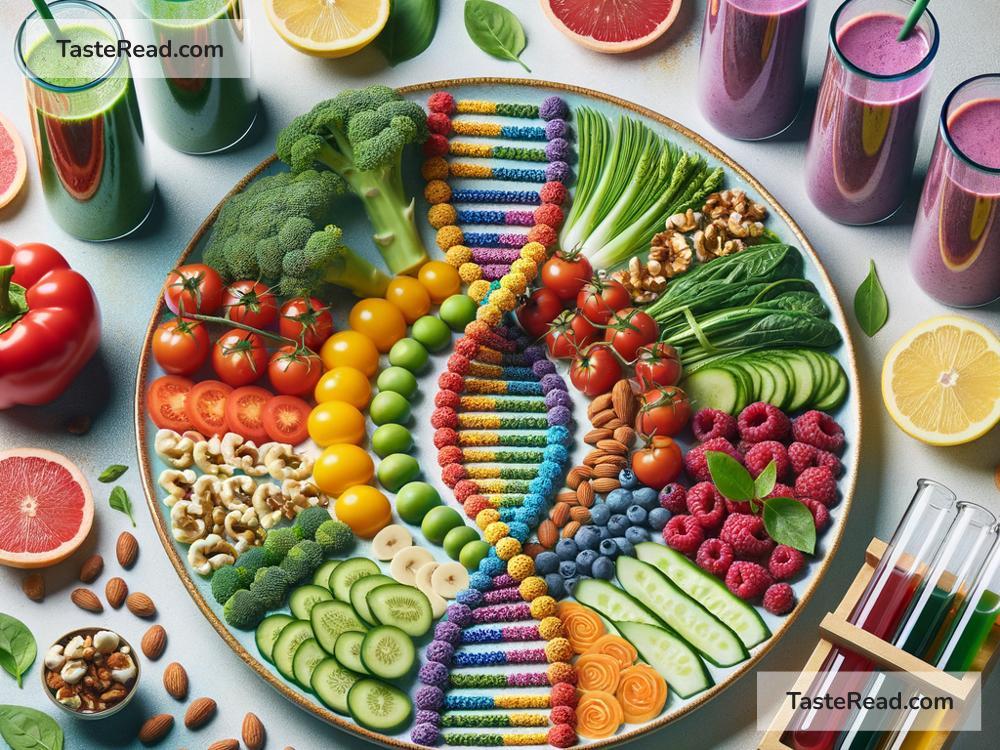Exploring the Role of Nutrigenomics in Health
Have you ever wondered why some people thrive on a certain diet while others seem to struggle with the same food plan? Or maybe you’ve noticed that what keeps one person healthy might not work as well for another. The answer might lie in a fascinating field of science called nutrigenomics!
Nutrigenomics is a blend of two big ideas—nutrition and genetics. This scientific field studies how the food we eat interacts with our individual genes and affects our overall health. It’s like looking at a personalized map of your body, where your genes and diet work together to shape how you feel and function.
But how does it work, and why does it matter? Let’s dive into the world of nutrigenomics to explore its potential for improving health in simple terms.
What Is Nutrigenomics?
At its core, nutrigenomics studies the relationship between your DNA (genetic material) and what you eat. Think of your DNA as your body’s instruction manual, containing unique details about every part of you. Nutrigenomics investigates how nutrients from foods—like vitamins, minerals, and other compounds—interact with your genes.
For example, imagine your genes as switches that can be turned “on” or “off.” Certain foods or nutrients might specifically activate or deactivate these switches, changing the way your body works. This is important because these changes can influence how your body processes food, how you fight off illnesses, and even how you age.
Why Is Nutrigenomics Important?
Right now, general nutrition advice typically works for most people, but it doesn’t account for individual differences. Nutrigenomics allows scientists to dig deeper and understand why some people respond differently to food. For instance:
- One Size Doesn’t Fit All: Have you ever heard someone say they feel amazing on a plant-based diet, while someone else says they need more protein from animal sources? This could come down to genetic differences that influence how their bodies process certain foods. Nutrigenomics helps explain these differences.
- Preventing Chronic Diseases: Some people may have genes that put them at risk for certain conditions like diabetes, obesity, or heart disease. The way they eat can either increase or decrease their likelihood of getting sick. With nutrigenomics, the goal is to identify those risks early and create personalized diets that lower the chances of developing diseases.
- Personalized Health: By understanding your unique genetic blueprint, you could create a diet tailored to your specific needs. This personalized nutrition approach might boost your energy, improve mental clarity, or even help you manage health issues.
How Does Nutrigenomics Work?
Nutrigenomics relies on genetic testing to analyze your DNA. In many cases, this involves taking a simple saliva or blood sample to look at your genetic makeup. Scientists then examine your genes for variations—called “SNPs” or single nucleotide polymorphisms—that might affect how your body reacts to certain nutrients or foods.
Once these variations are identified, they can reveal a lot about how your body functions. For example, you might learn:
– Whether your body processes carbohydrates or fats efficiently.
– If you’re more likely to be sensitive to gluten or lactose.
– Whether you’re predisposed to vitamin deficiencies.
– How your body responds to caffeine or alcohol.
With this information, you can make more informed decisions about your diet, choosing foods that support your health goals and avoiding ones that might not suit your genetic profile.
Real-Life Applications of Nutrigenomics
The idea of personalized nutrition might sound futuristic, but it’s already happening today! Many companies now offer genetic testing kits that provide insights into how your genes interact with food. For example, your results might say you’re prone to iron deficiency, so you decide to eat more spinach, beans, or lean meats. Or you might discover that your body has a harder time metabolizing caffeine, so you adjust your coffee habits to avoid jitteriness.
Nutrigenomics is also being applied in medicine. Doctors and nutritionists can use genetic testing to create diet plans for patients with specific conditions, like diabetes or high blood pressure. By focusing on the foods that work best for a person’s genetic makeup, they can improve outcomes and help people manage their health more effectively.
The Challenges of Nutrigenomics
While nutrigenomics offers exciting possibilities, it’s important to remember that it’s a relatively new field. Scientists are still learning about the complex relationships between food, genes, and health.
Additionally, there are challenges like:
– Cost: Genetic testing can still be expensive for many people.
– Privacy: Sharing DNA information raises concerns about how this data is stored and used.
– Complex Interactions: Genes are only one piece of the puzzle. Other factors—like lifestyle, environment, and stress—also play a big role in your health. Nutrition advice may never be 100% perfect.
The Future of Nutrigenomics
Nutrigenomics is rapidly growing, and its potential for transforming health is enormous. In the future, we might see genetic testing become more accessible, affordable, and precise. Doctors and dietitians could use it to help people prevent disease, boost energy, and live longer, healthier lives.
While we’re still at the beginning of this journey, one thing is clear: nutrigenomics has opened the door to personalized nutrition and healthier living. It’s a reminder that we’re not all the same—and that our uniqueness should be celebrated when it comes to health and wellness.
So the next time you pick up your fork, remember: The food you eat isn’t just fuel—it’s also information your body can use to thrive. Nutrigenomics offers a glimpse into how this process works, and it could be the key to unlocking a healthier future for us all.
By understanding nutrigenomics, you can make more informed choices about your health and well-being. Are you ready to explore how your genes and food might be connected? The possibilities are endless!


